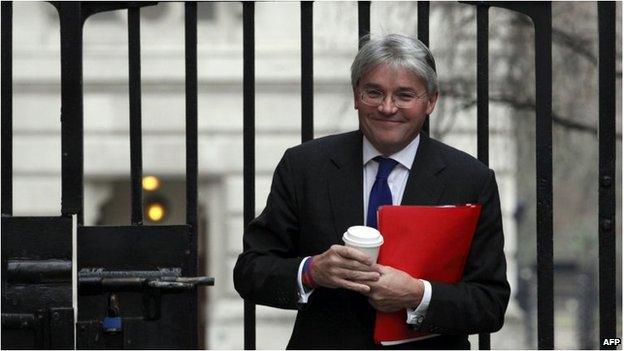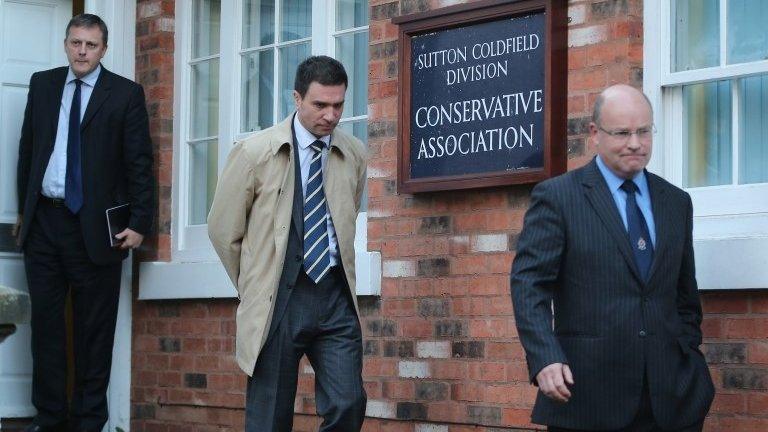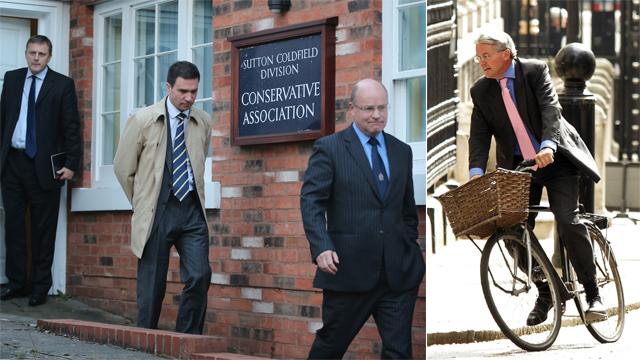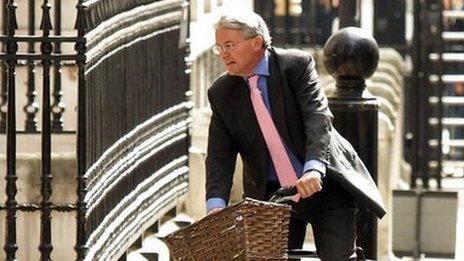'Plebgate' Police Federation officers face IPCC probe
- Published

Three Police Federation officers are to be investigated by the Independent Police Complaints Commission (IPCC) over the "plebgate" affair.
The three will be scrutinised over their account of a meeting with Andrew Mitchell in October 2012, over claims - denied by the then minister - he had called Downing Street officers "plebs".
A West Mercia Police-led investigation ruled the men had "no case to answer".
However, the IPCC has now decided to conduct a fully independent probe.
It follows a High Court ruling in October which found there was no proper final report prepared for the investigation - conducted by West Mercia Police but supervised by the IPCC.
The court also ruled that the decision of the three police forces - from Warwickshire, West Mercia and West Midlands - that their officers had no case to answer was invalid.
Following the "plebgate" incident at Downing Street in September 2012, then-Chief Whip Mr Mitchell apologised for using bad language but said he had not used the word pleb when having a row with police officers guarding the street's main gate.
He later resigned as chief whip as the row continued.
A month later, Mr Mitchell held a meeting in his Sutton Coldfield constituency with Det Sgt Stuart Hinton, Insp Ken MacKaill and Sgt Chris Jones from the federation.
After the meeting, the three officers - who represented police in Warwickshire, West Mercia and West Midlands respectively - briefed the media.
But a transcript of a recording Mr Mitchell made of the meeting apparently contradicted the officers' account of what was said.
Transcript differences
The matter was then referred to the IPCC, which decided not to conduct its own investigation but directed the forces which the officers represented to launch their own inquiry.
When all three police authorities concluded the officers had "no case to answer", Deborah Glass, then the IPCC's deputy chair, decided in October 2013 that the investigation into the officers' conduct should become "an independent investigation" conducted by the IPCC itself.
All three officers applied for a judicial review at the High Court in London and at hearing in July, asked two judges to quash the decision on the grounds that the IPCC had no power to re-determine the case - changing it from a supervised investigation to an independent one.
Lord Justice Davis and Mr Justice Wilkie found decisions made by the police forces were so legally flawed that they were "invalid and of no effect".
But while the judges ruled that the IPCC did have the power or re-determine the case, they also ruled that Ms Glass's decision must be quashed following allegations of apparent - though not actual - bias and a fresh decision taken.
That fresh decision has now been taken by the IPCC, which has reached the same conclusion as Ms Glass.
- Published6 October 2014

- Published23 October 2013

- Published26 November 2013
